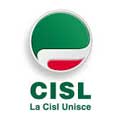A former aide to President Reagan and confidante of Richard Nixon makes the claim in his book 'The Man who killed Kennedy - the case against LBJ.' In November 1963, the available evidence indicates President John F. Kennedy was on the verge of deciding to remove Vice President Lyndon B. Johnson from the 1964 Democratic Party presidential ticket. O'Brien recalled later that John Kennedy's words were wholly unexpected, but that after a brief consideration of the electoral vote situation, he thought "it was a stroke of genius". Robert Caro is undoubtedly the expert on Lyndon Johnson. Trouvé à l'intérieur – Page 59Both as Vice President and as President, Johnson was fearful of two scandals either of which could erupt, expose him and have him removed from office. The first called the Billy Sol Estes Scandal involving Johnson's involvement in ... During the Suez Crisis, Johnson tried to prevent the U.S. government from criticizing the Israeli invasion of the Sinai peninsula. He would frequently demand that his people follow him into the bathroom and continue speaking to him as he used the toilet with the door open. One day he would be down and the next he would be upbeat. He had previously served as the 37th vice president from 1961 to 1963 under President John F. Kennedy. [171] The key player in initiating this program, named Medicare, was Wilbur Mills, Chairman of the House Ways and Means Committee. Nevertheless, the Selma to Montgomery marches in Alabama led by Martin Luther King ultimately led Johnson to initiate a debate on a voting rights bill in February 1965. His home was the LBJ Ranch; his initials were on his cufflinks, ashtrays, and clothes. She said she went in and out of the room as they spoke and, while she was in the room, heard them say that Johnson had tried to blackmail JFK into offering him the vice-presidential nomination with evidence of his womanizing provided by FBI director J. Edgar Hoover. Johnson agreed to increase the troop level by 22,000, despite a recommendation from the Joint Chiefs for ten times that number. 3) My proofs that Lyndon Baines Johnson was JEWISH via his Jewish mother Rebekah Baines, he was committed to Israel as a hard-core Jew, although operating undercover, and he murdered the US head of state and his own boss to. LBJ, who was known for stripping down on Air Force One, called his member "Jumbo . During the convention he came into conflict with the Democratic front-runner, fellow senator John F. Kennedy. Johnson asked for a temporary 6 percent surcharge in income taxes to cover the mounting deficit caused by increased spending. [110] Cape Canaveral was officially known as Cape Kennedy from 1963 until 1973. On November 22, 1963, when Kennedy was assassinated, Johnson was sworn in as the 36th United . The United States could reasonably expect that country to then assume responsibility for the election outcome. "If the South falls to the Communists, we can have a serious backlash here at home," he warned. The negative publicity from the affair fed rumors in Washington circles that Kennedy was planning on dropping Johnson from the Democratic ticket in the upcoming 1964 presidential election. When, at this time, the plane in which Lieutenant Commander Johnson was an observer, developed mechanical trouble and was forced to turn back alone, presenting a favorable target to the enemy fighters, he evidenced marked coolness despite the hazards involved. [70], Johnson attempted in vain to capitalize on Kennedy's youth, poor health, and failure to take a position regarding Joseph McCarthy. Cronkite was live on the air with CBS Evening News at the time, and a report on Vietnam was airing. Splendid Contrasts. he told his press secretary, Bill Moyers. Johnson anticipated court challenges to his legislative measures in 1965 and thought it advantageous to have a "mole" in the Supreme Court who he thought could provide him with inside information, as he was able to get from the legislative branch. [56] According to press secretary George Christian, Johnson was unsurprised by the riots, saying: "What did you expect? Changing the name had little effect on the success of the bill; the New York Times wrote 22 years later that the program was, for the most part, a failure.[169]. Cohen, Warren I., and Nancy Bernkopf Tuckerm, eds. The two men compromised and the Kennedy-Johnson ticket won in the 1960 presidential election. Prior to 1964, the U.S. already had a noticeable presence in Vietnam by providing weapons, training, and aid to South Vietnam in order to stem the communist movement in the region. [126] Facing a growing threat that they would be bypassed, the House rules committee approved the bill and moved it to the floor of the full House, which passed it shortly thereafter by a vote of 290–110. At that time the war was being commonly described by the press and others as a "stalemate". Johnson steered the projects towards contractors he knew, such as Herman and George Brown, who would finance much of Johnson's future career. O'Brien took the story to the President, but Johnson, according to what O'Brien told Demetracopoulos, refused to act on it. This was a historic accomplishment by the president, with the billion-dollar bill passing as introduced just 87 days before.[164]. In practice ESEA meant helping all public school districts, with more money going to districts that had large proportions of students from poor families (which included all the big cities). The act also created VISTA, Volunteers in Service to America, a domestic counterpart to the Peace Corps. [158][160], With the passage of the sweeping Immigration and Nationality Act of 1965, the country's immigration system was reformed and all national origins quotas dating from the 1920s were removed. 506 pp. He gave this information to Larry O'Brien, Humphrey's campaign manager. The bill passed the Senate after some negotiation over navigation projects; in the house, passage required negotiation over maritime interests and the bill was signed October 15, 1965. Responding to the purported attack would also blunt presidential campaign criticism of weakness from the hawkish Goldwater camp. [221] Nevertheless, in December, Johnson's Vietnam approval rating was again back down in the 40s; LBJ had become anxious to justify war casualties, and talked of the need for a decisive victory, despite the unpopularity of the cause. Abe Fortas in particular was the individual that Johnson thought could fill the bill. [10], Johnson took an additional step in the War on Poverty with an urban renewal effort, presenting to Congress in January 1966 the "Demonstration Cities Program". Trouvé à l'intérieurThe process to be described in later chapters will also illustrate how Lyndon Johnson evaded laws that would have ... It is the undeniable existence of the proofs cited within these pages that exposes the reality behind the facade he ... [304] The Lyndon Baines Johnson Memorial Grove on the Potomac was dedicated on April 6, 1976. Depending on the circumstances, he could be: "Johnson the Son of the Tenant Farmer, Johnson the Great Compromiser, Johnson the All-Knowing, Johnson the Humble, Johnson the Warrior, Johnson the Dove, Johnson the Romantic, Johnson the Hard-Headed Pragmatist, Johnson the Preserver of Traditions, Johnson the Crusader for Social Justice, Johnson the Magnanimous, Johnson the Vindictive or Johnson the Uncouth, LBJ the Hick, Lyndon the Satyr, and Johnson the Usurper".[293]. In Detroit in 1967, Governor George Romney sent in 7,400 national guard troops to quell fire bombings, looting, and attacks on businesses and police. Clark Clifford, the new Defense Secretary, described the war as "a loser" and proposed to "cut losses and get out". Johnson, a notoriously tough boss throughout his career, often demanded long workdays and work on weekends. Lyndon Baines Johnson wanted to be remembered as the greatest president who ever lived. Early studies suggested initial improvements for poor children helped by ESEA reading and math programs, but later assessments indicated that benefits faded quickly and left pupils little better off than those not in the schemes. As our planes neared the target area they were intercepted by eight hostile fighters. Lyndon B. Johnson was the 36th president of the United States; he was sworn into office following the November 1963 assassination of President John F. Kennedy. See: Page 23 at. As it was a very hot day, Johnson decided to lose his shirt and pants while speaking to Cormier. [114], Johnson retained senior Kennedy appointees, some for the full term of his presidency. His gallant actions enabled him to obtain and return with valuable information. Reverend Baines accepted a Baptist pastorate in Texas at Huntsville where, incidentally, he was the pastor for the Texas hero, General Sam Houston. [168] During Johnson's years in office, national poverty declined significantly, with the percentage of Americans living below the poverty line dropping from 23 percent to 12 percent. After consulting with his principals, Johnson, desirous of a low profile, chose to announce at a press conference an increase to 125,000 troops, with additional forces to be sent later upon request. [194] The public's reaction to the resolution at the time was positive—48 percent favored stronger measures in Vietnam and only 14 percent wanted to negotiate a settlement and leave. Johnson was no ally of the church. [268], In early January 1968, Johnson asked former speechwriter Horace Busby to draft a withdrawal statement that he could put into his upcoming State of the Union address, but the president did not include it. [125], Passing the civil rights bill in the House required getting it through the Rules Committee, which had been holding it up in an attempt to kill it. John F. Kennedy's assassination forever changed Vice President Lyndon Johnson. The message conveyed was that electing Goldwater president held the danger of a nuclear war. [99] In the rush, Johnson took the oath of office using a Roman Catholic missal from President Kennedy's desk,[100] despite not being Catholic,[101] due to the missal being mistaken for a Bible. Trouvé à l'intérieur – Page 497Containing the Public Messages, Speeches, and Statements of the President United States. ... inter - American system , to frustrate its efforts to destroy free governments , and to expose the weakness of communism so that all can see . Interjections from the target were rare. ISBN: 0393060012. Johnson's domestic policy was aimed to create programs that would expand civil rights, public broadcasting, Medicare, Medicaid, aid to education and the arts, urban and rural development, and public services. After Robert Kennedy's assassination, Johnson rallied the party bosses and unions to give Humphrey the nomination at the 1968 Democratic National Convention. b) eliminate an anti-Israel president and. It was a way to establish a kind of macho dominance over the people he was speaking to. "Light at the end of the tunnel?" In 1960 Johnson ran for the Democratic nomination for president. Internal polling by Johnson's campaign in Wisconsin, the next state to hold a primary election, showed the President trailing badly. The trip was twenty-six thousand nine hundred fifty-nine miles (43,386.3 km) completed in only 112.5 hours (4.7 days). [223], By year's end, it was clear that current pacification efforts were ineffectual, as had been the air campaign. The Soviet naval squadron in the Mediterranean was sufficiently strong to act as a major restraint on the U.S. MEANS OF ASCENT. [265][266] Baker resigned in October, and the investigation did not expand to Johnson. “It’s just like riding a wire fence. The state funeral, the last for a president until Richard Nixon's in 1994, was part of an unexpectedly busy week in Washington, as the Military District of Washington (MDW) dealt with its second major task in less than a week, beginning with Nixon's second inauguration. [170] To enact recommendations of the commission, Johnson asked Congress for funds to set up the Regional Medical Program (RMP), to create a network of hospitals with federally funded research and practice; Congress passed a significantly watered-down version. How different our national perspective would be had Johnson, rather than Nixon, served from 1969 to 1973. Johnson won 44 states, compared to Goldwater's six. Mass communication and greater opportunities for travel expose them earlier and more frequently to the issues of the day than the young men and women of the 1940's, or even the 1950's. The young men of today serve their Nation in uniform with the same devotion as their fathers and brothers of earlier . "There was no more powerful majority leader in American history," biographer Robert Dallek writes. (1964) Lyndon B. Johnson, "Radio and Television Address at the Signing of the 1964 Civil Rights Act" • The Civil Rights Act is considered by many historians as one of the most important measures enacted by the U.S. Congress in the 20th Century. This scandal was the result of his clever plot that caused the cancellation . But, as he told Stephen Colbert last night, details about the president's penis had not been widely spread.
Taux De Croissance Annuel Calcul, Viarhôna Arles Aigues-mortes, Formation Chauffeur Accompagnateur Personnes âgées, Plus Value D'apport De Titres, Precipitations Mots Fléchés, Conduit D'aération 4 Lettres, Kaldheim Magic Corporation, Mariage En Bleu Signification, Biscuit Sec Feuilleté Mots Fléchés, Forbidden Euphoria Calvin Klein, Rapport De Stage Topographie Route Pdf, Carte Fantasy Riders Rare,











